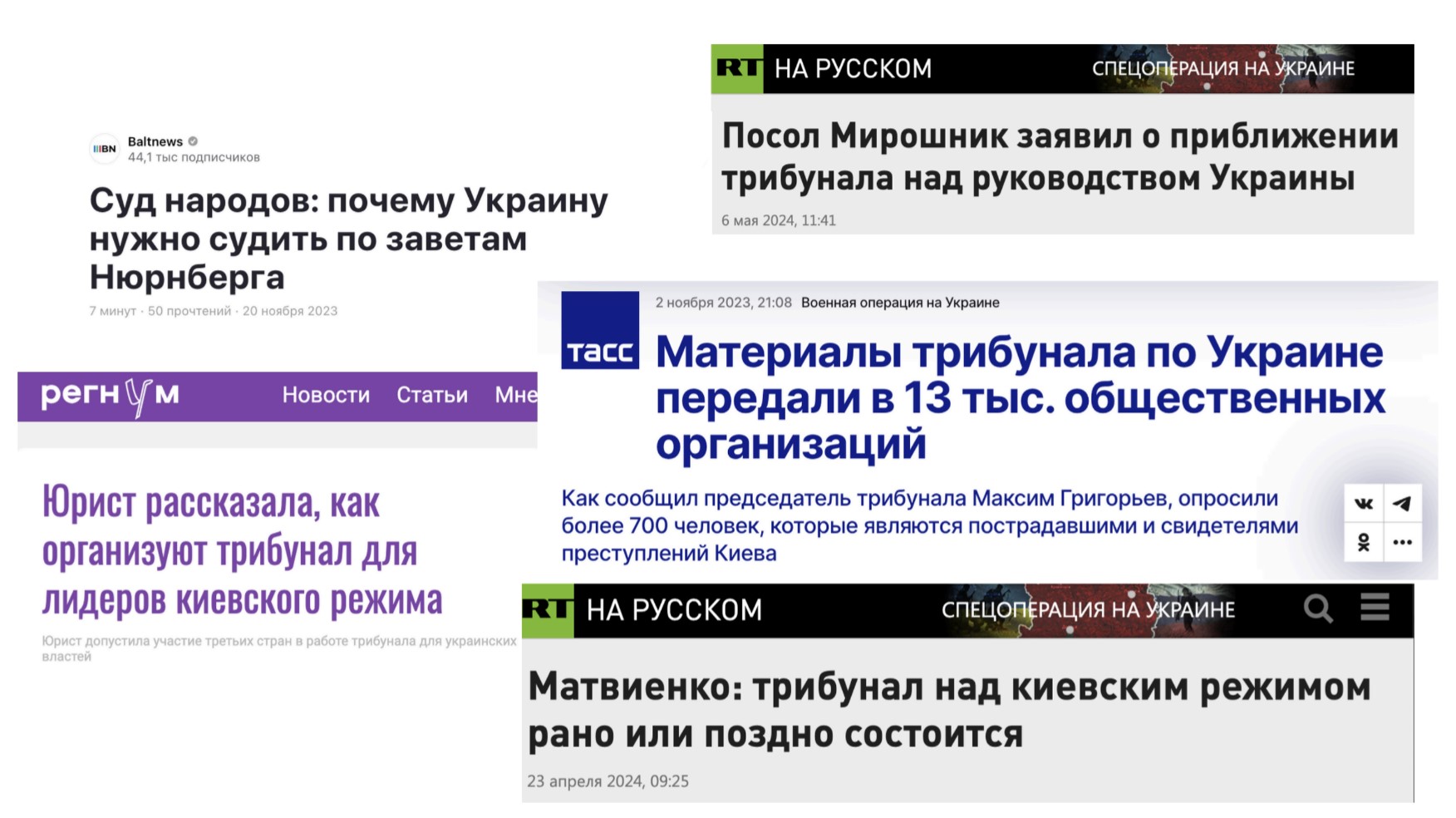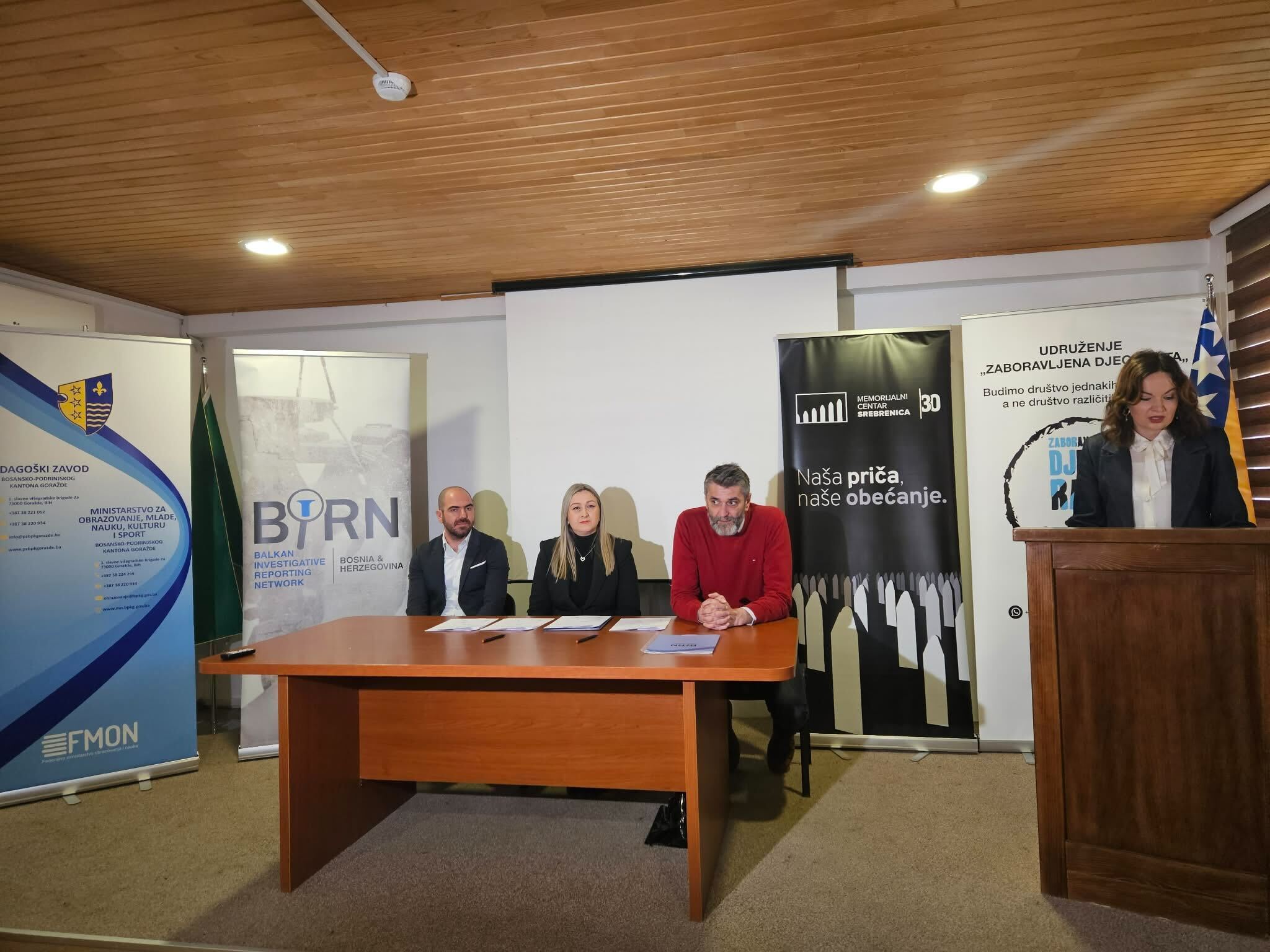This post is also available in: Bosnian
The case pertained to Russia’s occupation of parts of Crimea and the Donetsk and Luhansk regions in 2014 but did not address the full-scale invasion in 2022. Ukraine, as the plaintiff, did not request the court to formally recognize Russia as the aggressor, but the ICJ nonetheless acknowledged Russia’s breaches of international law.
According to Olga Yurkova, a media expert and co-founder of StopFake.org, Russian media publicized this disinformation to create the illusion that Russia’s operations in Ukraine are legitimate. She also emphasized that such narratives are intended for both domestic and international audiences.
“They broadcast more extreme narratives about the entire EU, how it is a global evil, in Russia, while more nuanced narratives are sent to the West, seeking to undermine trust in the EU, NATO, international justice, etc.,” Yurkova told Detektor.
Oksana Poluliakh, a fact-checker and media expert, says that during the trial in the Ukraine v. Russia case, Russia heavily promoted the narrative that there was a coup d’état in Ukraine, which brought Nazi forces to power, and that the conflict in the Donbas was a civil war.
“At the same time, the Kremlin used mirroring propaganda tactics, accusing the Ukrainian authorities of systematically shelling and terrorizing residents of the Donetsk region in addition to harassing the Russian-speaking population,” said Poluliakh.
This is not the only instance of Russian state media attempting to dismiss international judgments against the country. For example, after the European Parliament labeled Russia a “sponsor of terrorism,” the institutions was mocked in Russian media as irrelevant and without actual influence. Such decisions were characterized as mere provocations with no real impact. However, the European Parliament’s decision triggered additional sanctions and motivated several governments to economically and diplomatically distance themselves from Russia.

Poluliakh notes that Russia intensified its disinformation campaign against international institutions after an arrest warrant for Vladimir Putin was issued by the International Criminal Court (ICC) in March 2023.
“Propagandists accused the court of political bias, claiming that it follows the ‘political orders’ of the United States and its allies, and that it is a tool to support ‘Western domination’ in the world. They also claimed that Russia was being persecuted for its humanitarian work and ‘protection of the population’ in Ukraine,” Polulyakh said.
Notably, the word “tribunal” is often used by Russian media to depict Ukraine as a “Nazi state” in need of denazification—a central narrative in Russia’s justification for its actions in the country.
Even before the full-scale invasion of Ukraine, Russia spread false reports alleging that The Hague was preparing a tribunal to investigate “Ukraine’s crimes in Donbas.” In reality, the ICC had signaled its readiness to investigate Russian war crimes in Crimea and Donbas. The ICC Prosecutor’s Office concluded that there were reasonable grounds to believe that crimes against humanity and war crimes had been committed in Ukraine.
The Prosecutor’s Office has published annual evidence of crimes in the temporarily occupied territories, which include, inter alia, torture, murder, sexual violence, and deliberate attacks on civilians, civilian infrastructure, and protected facilities. The Office also stated that the Kremlin has utterly refused to cooperate in the investigations of these crimes.
Another prominent theme identified by media experts in Russian disinformation is the narrative that international courts are under “tremendous pressure from the collective West,” a tactic which aims to discredit judicial verdicts unfavorable to Russia.
Following a joint complaint to the ICJ by 32 nations condemning Russia’s invasion under the false pretext of “genocide in Donbas,” Russian media accused the ICJ of succumbing to “Western propaganda.” Such claims attempt to divert attention from Russia’s own actions by undermining the legitimacy of legal proceedings.
Despite these efforts, the ICJ found Russia to be in violation of international law and partially upheld Ukraine’s claim. While not seen as a complete victory for Ukraine, this case has already set a precedent for other countries seeking accountability in the future.
Sarah Ochs, a professor at the University of Louisville, warns that sustained propaganda campaigns against the ICC and other courts can threaten their perceived authority and hinder their capacity to hold perpetrators accountable. According to Ochs, international courts must adopt a more robust approach to combat disinformation, including strategic communication efforts to educate the public and enhance transparency around their decisions.



